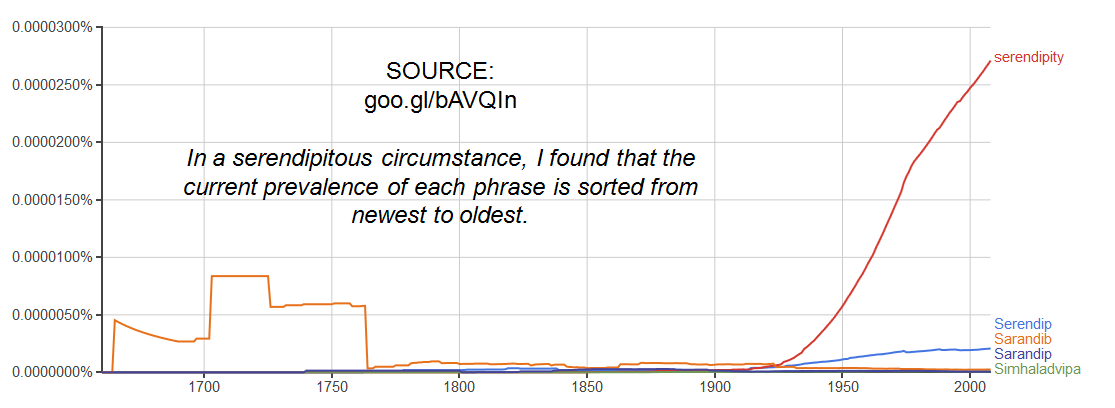|
Serendipity, a surprisingly complex English word describing a happy coincidence, has often been polled to be people's favorite word in English. It was coined in 1754 by Horace Walpole, the 4th Earl of Orford and Whig politician, as a reference to the island of Sri Lanka. This is not surprising because at the time, Serendip was another name for Ceylon, which is another name for Sri Lanka. The Earl coined this in the fashion of a fairy tale where three royals from Serendip make several accidental discoveries; thus the word occurred. Anyway, the proper noun Serendip is from Arabic sarandib, from Persian sarandip, which in turn is from Pali sihaldipa. We're getting pretty far back now, but it goes even further to Sanskrit Simhaladvipa, or "lion's dwelling island" , a portmanteau of simha, "lion" (note the connection to Swahili simba, "lion" and the Telugu word simhamu, "lion"; this is from the earlier word simh, or "to mount". Connections to Telugu are proven but connections to Swahili seem unlikely) and dvipa, "island". We can go no further here, but it's whimsical enough as it is!
0 Comments
Your comment will be posted after it is approved.
Leave a Reply. |
AUTHORHello! I'm Adam Aleksic. I have a linguistics degree from Harvard University, where I co-founded the Harvard Undergraduate Linguistics Society and wrote my thesis on Serbo-Croatian language policy. In addition to etymology, I also really enjoy traveling, trivia, philosophy, board games, conlanging, and art history.
Archives
December 2023
TAGS |



